Sustainability in Manufacturing Stages
Eco-friendly Manufacturing Procedures
We integrate eco-friendly practices into every stage of production, ensuring responsible use of resources while maintaining global compliance. Our facilities maximize the use of solar power, water recycling systems, and energy-efficient technologies, reducing environmental impact. We prioritize recyclable, biodegradable, and minimal-waste packaging materials, supporting both product safety and sustainability goals. Through responsible waste management and eco-conscious testing methods.
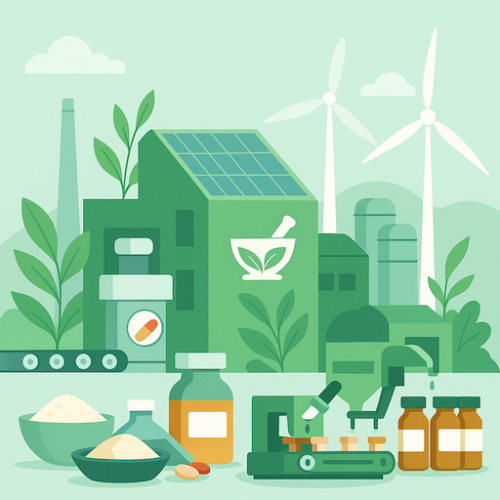
Eco-Responsible Manufacturing Practices
Renewable Energy Integration
- 30% Solar-Powered Operations – Reducing dependency on fossil fuels.
- Energy-Efficient Machinery – Optimized to lower electricity consumption.
Water Conservation
- 70% Water Recycling – Advanced purification and reuse systems.
- Zero-Liquid Discharge (ZLD) – Ensuring no wastewater enters natural ecosystems.
Waste Reduction
- Zero-Waste Initiatives – Repurposing production by-products.
- Biomass Upcycling – Spent herbs converted into compost or biodegradable materials.
Sustainable Sourcing & Supply Chain
Ethical Ingredient Sourcing
- GACP-Certified Farms – Herbs grown under Good Agricultural & Collection Practices.
- Fair Trade Partnerships – Supporting rural and tribal farming communities.
Transparent Supply Chain
- Blockchain-Based Traceability – From farm to final product.
- Non-GMO & Organic Inputs – Compliant with USDA/EU/India organic standards.
Eco-Friendly Packaging Solutions
Materials & Innovations
- Recyclable Packaging – Glass, aluminium, and PCR (post-consumer recycled) plastics.
- Biodegradable Films & Pouches – Compostable within industrial facilities.
- UV-Protective Glass – Extends shelf life and reduces waste.
Design for Sustainability
- Minimalist, resource-efficient packaging to lower carbon footprint.
- Eco-friendly inks and water-based adhesives.
Recyclable
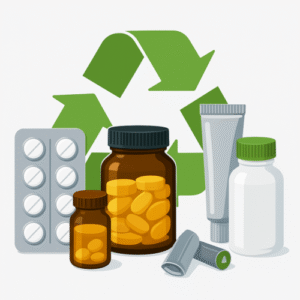
Biodegradable
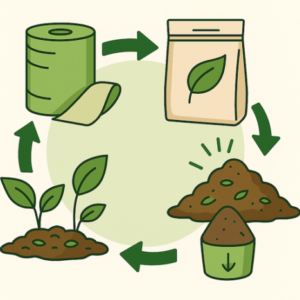
Eco-friendly
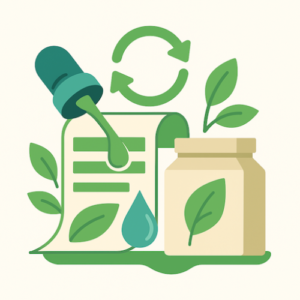
Natural Energy
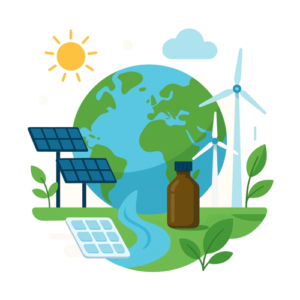
Global Compliance & Sustainability Standards
Certifications
- ISO 14001 – Environmental Management System.
- ISO 26000 – Social Responsibility Guidelines.
- USDA Organic, EU Organic, Fair Trade.
Alignment with Global Goals
- UN Sustainable Development Goals (SDGs) – Focus on clean energy, responsible consumption, and climate action.
- Integrated Green Practices – From sourcing to delivery.
- Market Advantage – Eco-certified products appeal to environmentally conscious consumers.
- Future-Focused Innovation – Investment in biodegradable, recyclable, and reusable solutions.
- Global Responsibility – Reducing environmental impact while supporting community growth.












